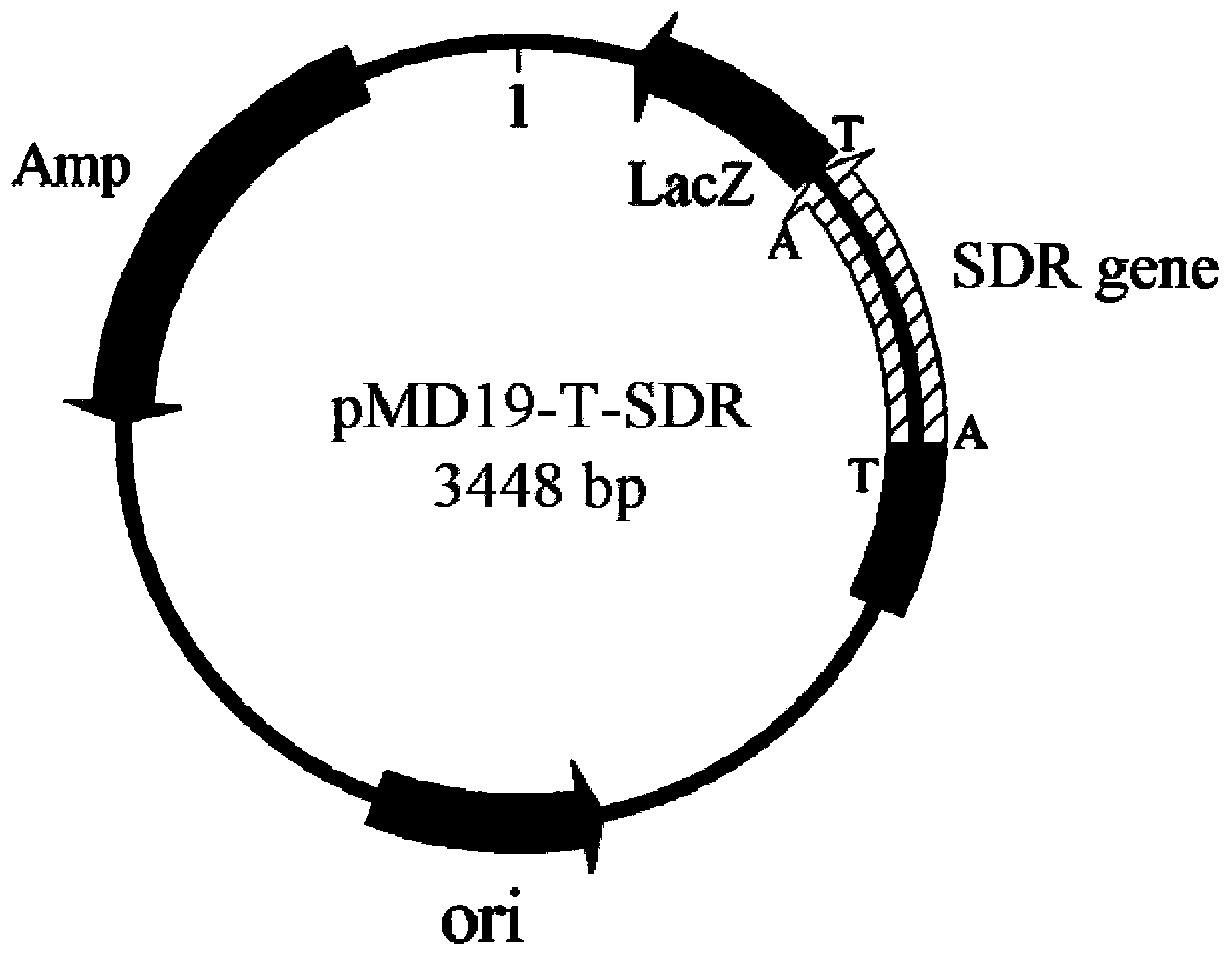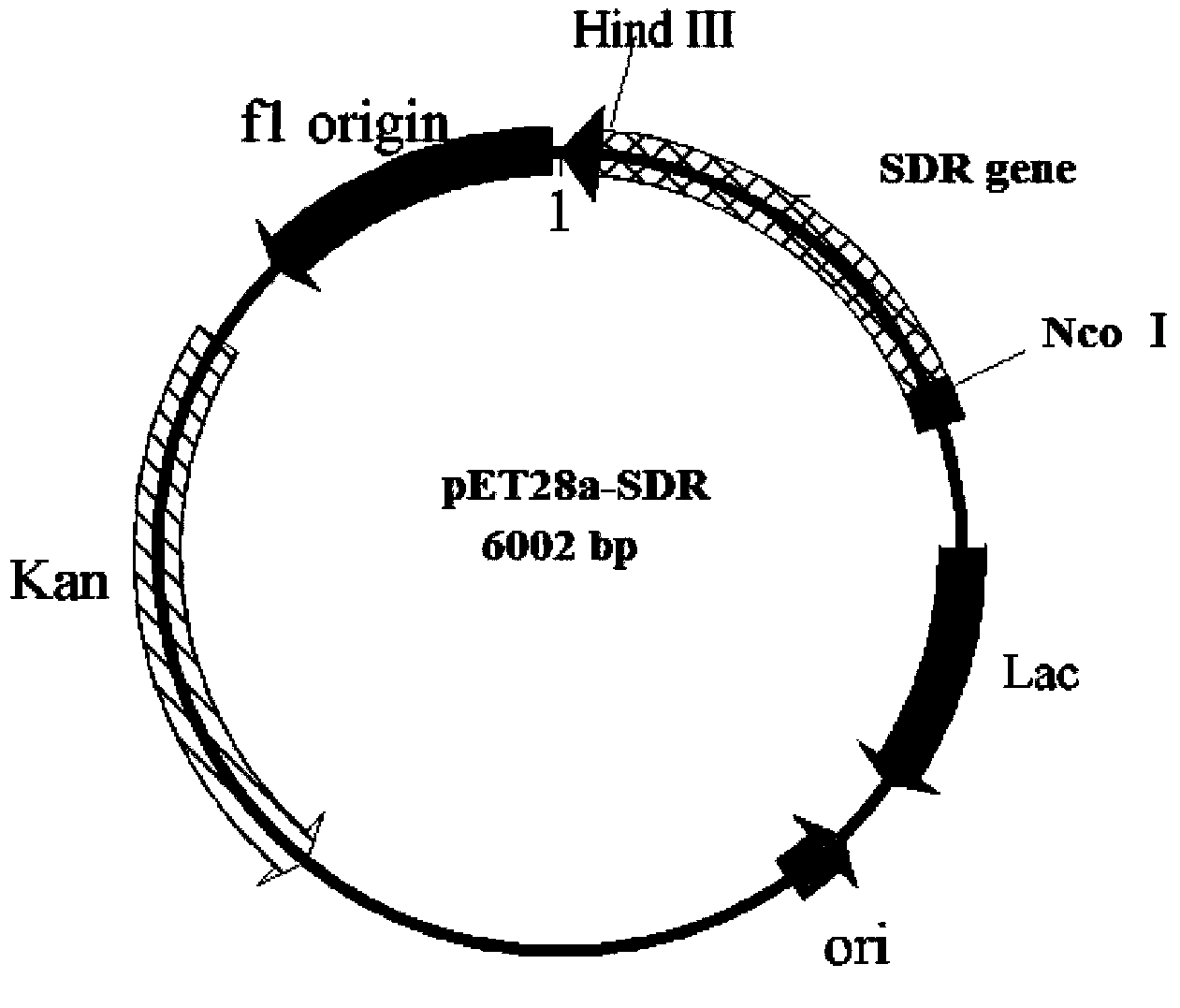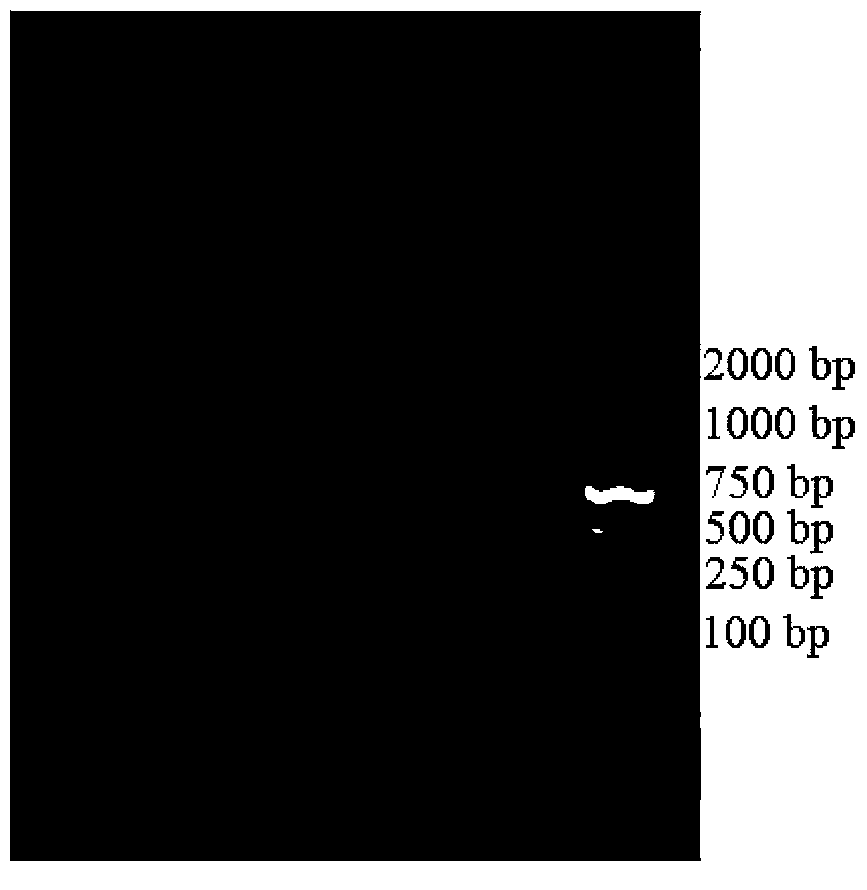Leifsonia xyli HSO904-based short chain dehydrogenase, and encoding gene, carrier, engineering bacteria and application thereof
A technology of short-chain dehydrogenase and Reflutonella, which is applied in the field of short-chain dehydrogenase, can solve the problems of low activity of short-chain dehydrogenase/reductase, limitation of large-scale preparation and application, etc.
- Summary
- Abstract
- Description
- Claims
- Application Information
AI Technical Summary
Problems solved by technology
Method used
Image
Examples
Embodiment 1
[0057] Embodiment 1: Derived from short-chain dehydrogenase, coding gene of Reflussonella
[0058] The total genomic DNA of the Leifsonia xyli HS0904 strain was extracted with a nucleic acid extraction kit (Axygen Co.) (this strain has been protected as a new strain in the Chinese invention patent ZL201010523043.X and preserved in the Chinese Typical Culture Collection Center, address: China, Wuhan, Wuhan University, collection number is CCTCC M2010241, storage date: September 21, 2010), using the genomic DNA as a template, primer 1 (ATGGCNCARTAYGAYGTNGC), primer 2 (YYAYTGNGCNGTRTAKCCYCC) under the effect of PCR amplification.
[0059] Addition amount of each component of the PCR reaction system (total volume 50 μL): Pfu DNA Polymerase mix 25 μL, cloning primer 1 and primer 2 each 3 μL (100 μM), genomic DNA 1 μL, nucleic acid-free water 18 μL. Biorad PCR instrument was used to amplify. The PCR reaction conditions were: pre-denaturation at 95°C for 5min, followed by temperatur...
Embodiment 2
[0060] Embodiment 2: Vector and recombinant genetically engineered bacteria
[0061] According to the analysis results of Example 1, expression primers 3 and 4 were designed, and Nco I and Hind III restriction enzyme sites were introduced into primers 3 and 4, respectively. In primer 3 ( CCATGG CGCAGTACGACGTGG, the underlined part is the Nco I restriction site, the italic part is the protected base) and primer 4 ( AAGCTT CTATTGTGCTGTGTAGCCTC, the underlined part is the Hind III restriction site, and the italic part is the protective base), and the high-fidelity Pyrobest DNA polymerase was used to amplify to obtain a 756bp short-chain dehydrogenase gene fragment (SEQ ID NO .1), after sequencing, use Nco I and Hind III restriction endonuclease to treat the amplified fragment, and use T4DNA ligase to treat the amplified fragment with the expression vector pET28a(+) treated with the same restriction endonuclease Connection, construction of expression vector pET28a(+)-SDR, p...
Embodiment 3
[0063] The recombinant Escherichia coli BL21 / pET28a(+)-SDR containing the expression recombinant plasmid pET28a(+)-SDR verified in Example 2 was used at 37°C and 200rpm in LB liquid medium containing 50 μg / mL kanamycin Shake culture for 12 hours, then inoculate into fresh LB liquid medium containing 50 μg / mL kanamycin with a volume concentration of 1% inoculum, and culture at 37°C and 200 rpm to the cell concentration OD 600 0.6-0.9, then add isopropyl-B-D-thiogalactopyranoside (IPTG) with a final concentration of 0.1mM to the culture medium, place at 30°C, 200rpm for 10h, centrifuge at 4°C, 10000rpm for 10min , collect the cells, wash the cells twice with normal saline, and collect the wet cells (that is, the whole cells of the recombinant bacteria).
[0064] (R)-3,5-bistrifluoromethylphenethanol is prepared by using wet bacteria as the enzyme source for transformation and using 3,5-bistrifluoromethylacetophenone as the substrate for the transformation reaction. Transformati...
PUM
 Login to View More
Login to View More Abstract
Description
Claims
Application Information
 Login to View More
Login to View More - R&D
- Intellectual Property
- Life Sciences
- Materials
- Tech Scout
- Unparalleled Data Quality
- Higher Quality Content
- 60% Fewer Hallucinations
Browse by: Latest US Patents, China's latest patents, Technical Efficacy Thesaurus, Application Domain, Technology Topic, Popular Technical Reports.
© 2025 PatSnap. All rights reserved.Legal|Privacy policy|Modern Slavery Act Transparency Statement|Sitemap|About US| Contact US: help@patsnap.com



